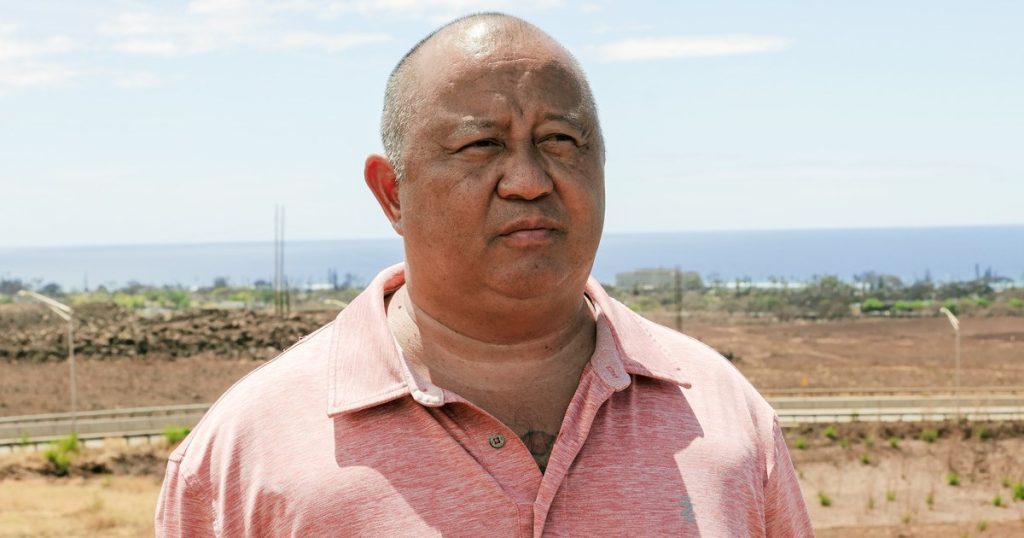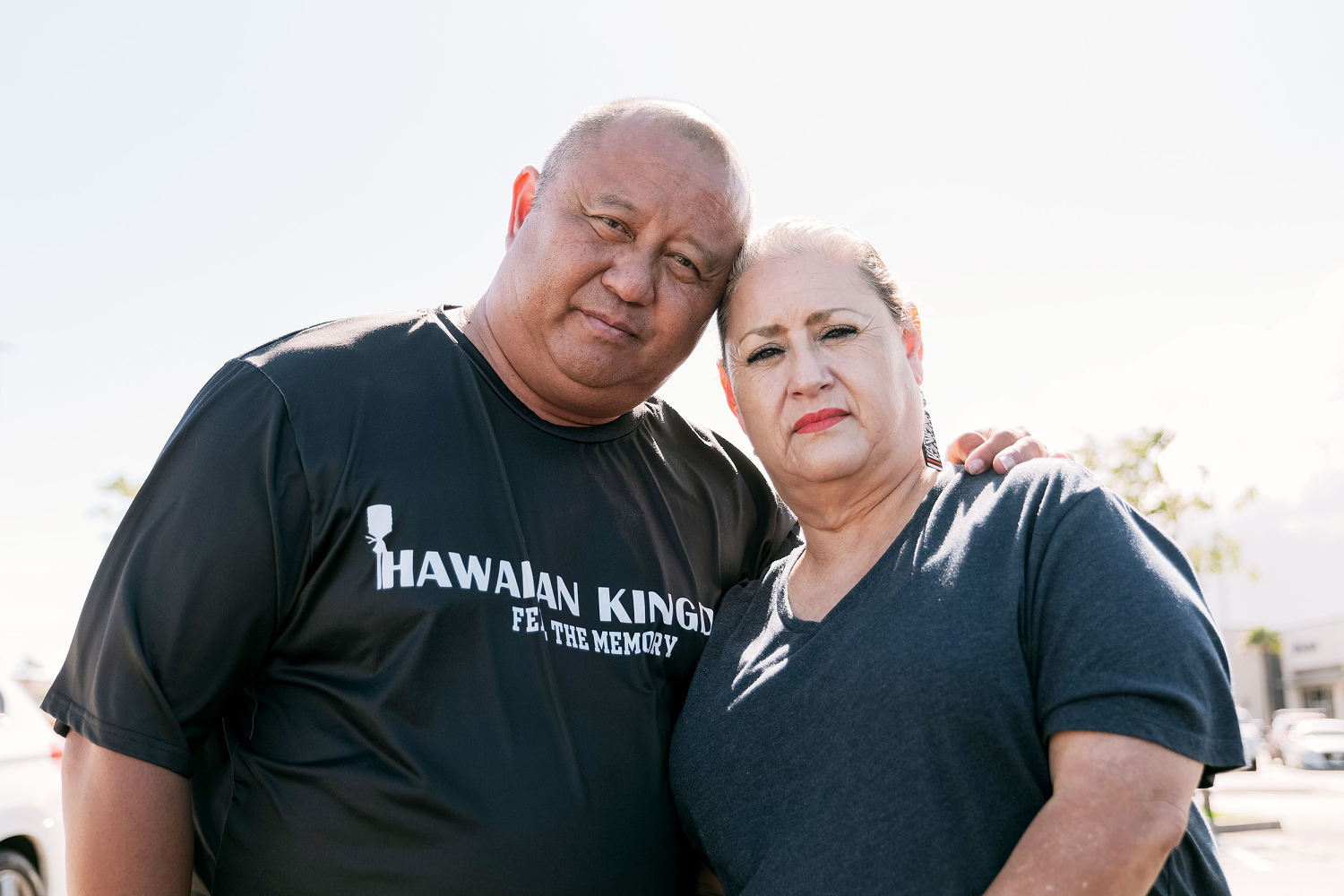

LAHAINA, Hawaii — Lahaina resident Erwin Miyamoto squinted as he pointed to a clay-colored speck far in the distance, its light blue roof barely visible against the deep cerulean of the sky.
“See that building?” he said, standing on a hill above a Hawaii National Guard blockade near the burn zone. “That was my property.”
Its colorful wall and roof are all that remain of the apartment complex Miyamoto managed before an Aug. 8 wildfire tore through Lahaina, killing 97 people and displacing thousands more.
A second building managed by the company that employs Miyamoto also burned to the ground. Everyone who lived in both buildings survived, he said.
Miyamoto and other residents returned to Lahaina to look for their belongings and assess the damage in the days after the fire, before federal officials blocked roads and set up security checkpoints accessible only to authorized workers.
On Monday, an initial round of residents displaced by the vicious wildfire began the painful journey home, marking the first time they have been allowed inside the disaster zone to see their empty properties.
Cars trickled into a Hawaii National Guard security checkpoint, some carrying residents in head-to-toe protective gear, who were escorted onto their properties as volunteers stood by to help them safely sift through the wreckage.
“They are standing in front of a loved one and saying goodbye,” volunteer Todd Taylor said. “It’s very important for these homeowners to look through that ash and see what’s there.”
Leading up to Monday’s re-entry, some residents had expressed trepidation not only about what they would see and what feelings would arise, but about the safety of the ground and air even after cleanup.
Others pored through weekly updates from county and federal officials who coordinated closely with the U.S. Environmental Protection Agency, which is overseeing the cleanup of toxic or dangerous materials.
Miyamoto was not among those granted a permit. The buildings he managed are deep within the disaster zone and it will be weeks, if not months, before he is allowed to go back.
“It’s frustrating,” he said. “You want to have closure.”

 Latest Breaking News Online News Portal
Latest Breaking News Online News Portal




